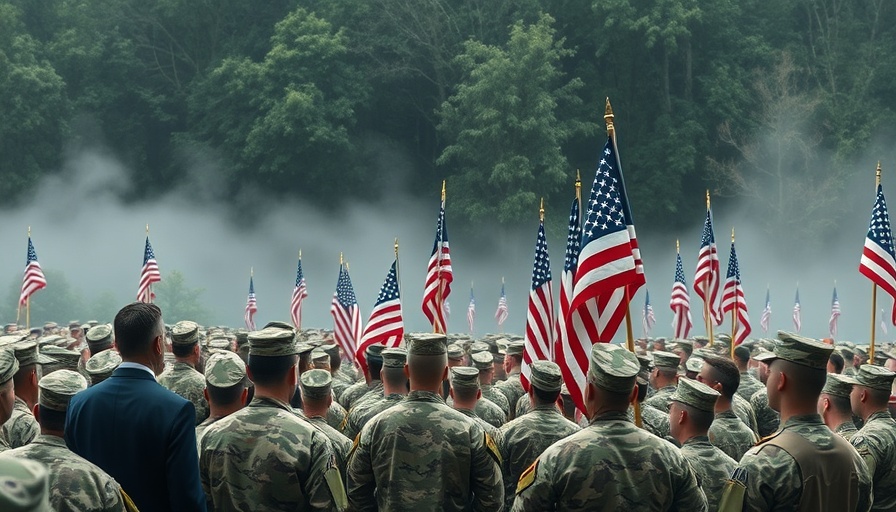
Trump's Controversial Decision to Revive Confederate Base Names
In a move that has set off a firestorm of debate, former President Donald Trump announced at a recent speech in Fort Bragg, North Carolina, that all Army bases previously named after Confederate generals will revert to their original names. This decision not only undermines a broader initiative to eliminate Confederate symbols from military culture but also raises significant questions about national reconciliation and historical memory.
Understanding the Background of Confederate Base Renaming
The renaming of Army bases, which started in earnest following George Floyd's death in 2020, was an effort to confront America's complex and painful racial history. Bases like Fort Bragg, named after Confederate General Braxton Bragg, had originally not faced much scrutiny. However, in the wake of heightened awareness concerning racial injustice, Congress mandated the change. The current decision to revert to these names by Trump effectively reverses years of work by activists and lawmakers aimed at addressing institutional racism.
The Implications of Renaming
Trump's choice to sidestep the 2020 legislation mandates significant ramifications. By using a legal maneuver to restore these names, the former President has thrown the Army into a state of confusion over its own policies. The Army plans to honor other illustrious service members alongside this controversial move. For instance, Fort Gordon will be renamed to honor Master Sgt. Gary Gordon, a soldier who died in the Battle of Mogadishu. However, this seemingly progressive gesture clashes sharply with restoring names that commemorate a treasonous rebellion.
The Social Connections Around Confederate Symbols
For many in the United States, particularly communities of color, symbols of the Confederacy represent oppression, slavery, and systemic racism. Trump's timing is particularly interesting, debuting his announcement amid a polarized political landscape, where many Americans are seeking tangible solutions to racial inequities. For family members of soldiers or veterans, the issue may become divisive, causing rifts in values and beliefs surrounding military heritage and historical accountability.
Conflicting Perspectives on Confederate Remembrance
While Trump asserts that restoring these names offers a form of strength and proud history, many individuals and organizations take a diametrically opposed view. Advocates for renaming argue that honoring Confederate figures only serves to celebrate a legacy of treason and racial violence against Black Americans. Service groups, historians, and activists alike warn that this move signals a regression in the fight for racial justice and fails to acknowledge historical truths.
Future Trends in Military Naming Conventions
This debate has opened the floor for broader questions about how institutions address and reconcile their pasts. While renaming may seem to be a straightforward process, it is deeply intertwined with community beliefs and national identity. Moving forward, military installations may need to weather scrutiny not only around names but also related policies and internal cultures regarding veterans and active-duty service members from diverse backgrounds.
The Importance of Continuous Dialogue
The conversations sparked by Trump's announcement emphasize the necessity of dialogue regarding historical narratives, memory, and reconciliation. Community leaders, educators, and policymakers must engage in thoughtful discussions to navigate these charged issues responsibly. Families and individuals can take active roles in shaping the narrative by emphasizing histories that uplift marginalized stories rather than those steeped in oppression.
As this issue unfolds, it becomes increasingly essential for citizens to engage critically with the legacies we choose to honor. Understanding the implications of these naming decisions on community dynamics can promote healthier conversations and foster unity rather than division.
In conclusion, Trump's inheritance of these controversial names reignites discussions surrounding race, history, and national identity. It compels us all to ask hard questions about who we celebrate in the public sphere and the messages those choices send about our shared values as a society.
 Add Row
Add Row  Add
Add 




 Add Row
Add Row  Add
Add 

Write A Comment